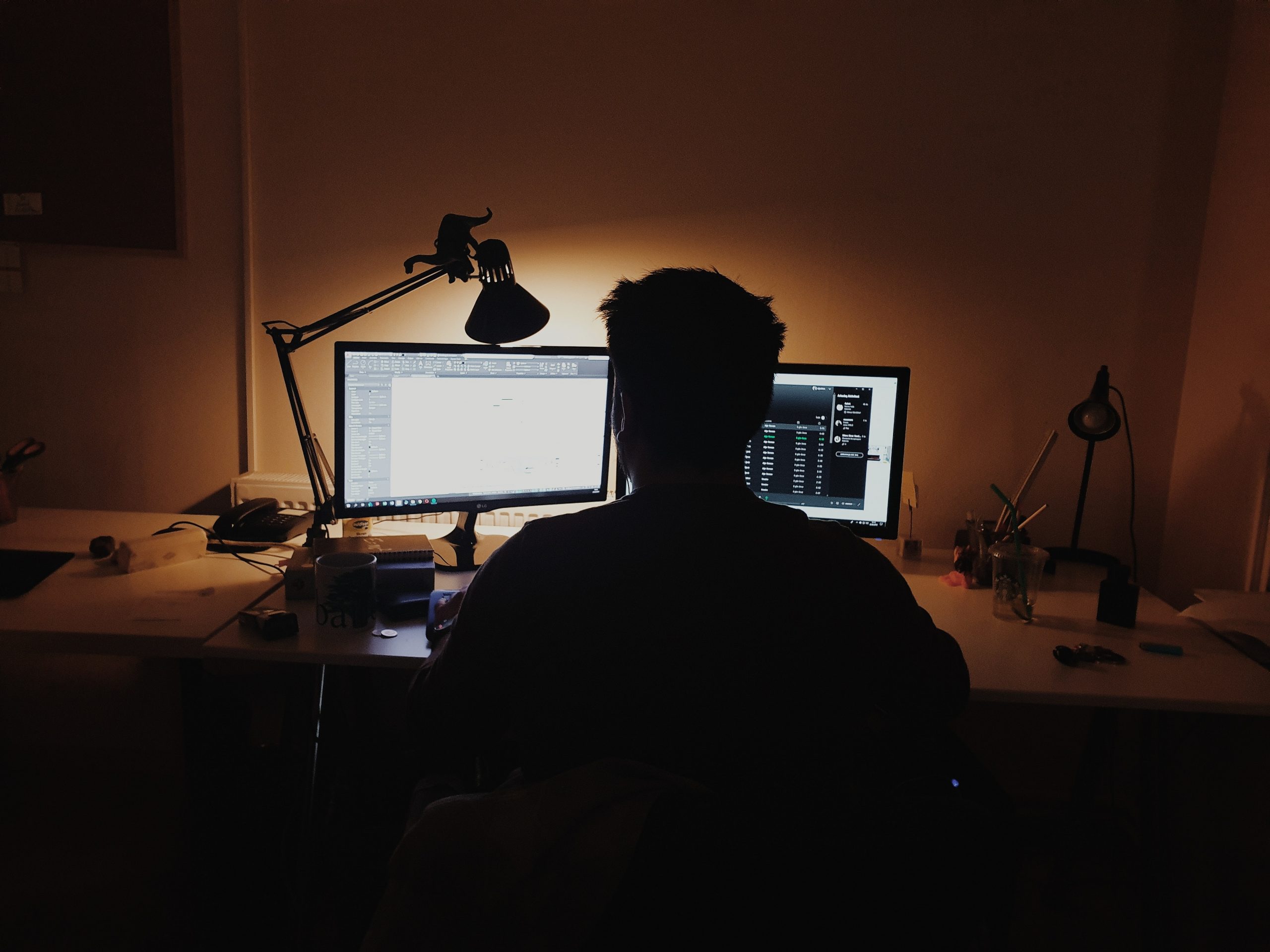
26 May 10 Tricks to Stave Off Digital Burnout in Lockdown
As lockdown drags on we’re spending more and more time on screens. For good or bad, they’re an even more integral part of our lives than before. Burnout, and particularly digital burnout, has always been a concern, especially amongst the generation that spends the most time on screens: Millenials. Excessive screen use simply doesn’t make us feel good. So, now that our lives rely even more heavily on screens, here are some ways to stave off digitally induced burnout.
1. Take time away
If you’re feeling overwhelmed, whether by an ever ringing group chat, never-ending emails from your boss, the constant need to be productive or the bad news that’s piling up, the best thing to do is to step away. You could make yourself a cup of tea and sit for a while by a window. You could read a book. You could spend some time looking after a plant or pet. Whatever you do, any time away will help you come back fresh and able to focus and not be burnt out by incessant screen time.
2. Get outside
The best way to get away from screens is to go outside and until recently not all of us had that luxury. Now everyone is allowed outside (in England) for as long as they want to exercise which we’re thrilled about. With the good weather coming a 10-minute walk around the block or cycle in a nearby park can make all the difference. You don’t even need to worry about how much you go out now, as long as you are moving. Your digital burnout will ease as you spend more time in nature, so go out as much as you can.
3. Connect with loved ones
Screens are not all bad and if you use them well they can make your life much better. Around the world people have been using tech to connect with distant family and friends for some time through social media and video calls. In our new normal this connection has expanded in a major way. Families are hosting quizzes. Friends are watching TV together. Daters are meeting virtually. Most importantly, vulnerable and isolated people are able to join in the same way as everyone else. So make sure you use at least some of the benefits of tech by connecting with your loved ones online.
4. Stay away from bad news
Although there’s been some good news recently with the lifting of some lockdown restrictions, generally we can agree it’s been pretty bad. Political scandals, economic problems and death tolls fill our feeds and whilst they are important they cannot be all we focus on. John Krasinski with Some Good News has come up with ways to focus on the positive and we should follow that example. Maybe limit your intake to only major media sites instead of Twitter? Or designate a time each day when you check the news instead of having a constant stream which will only increase your stress.
5. Blow off steam
The world is very serious right now, and rightly so. But, if you’re already struggling with digital burnout then why not bring some lightness into your life? There are plenty of new escapist TV shows for you to watch from Normal People on the BBC to White Lines or Dead to Me on Netflix. If you want mindless laughs then there are loads of old sitcoms back online such as How I Met Your Mother and One Tree Hill. There’s also a lot of social media content: UK TV commentator Andrew Cotter has been employing sports-style commentary on the quirky habits of his dogs, Mabel and Olive. Comedians Rachel Parris and Marcus Brigstocke have been challenging each other to lip sync battles on Twitter from their home.
6. Keep cyber safe
We’ve already written about the importance of staying safe as we conduct all of our lives online during this lockdown. Cyber-attacks have risen, in the forms of fraud and Zoom bombs of hacking of your video call, often to show explicit content. None makes it easier to live and work remotely. Make sure that you’re using common sense and all the available information to protect yourself against any would-be cybercriminals. We don’t need life to be any more difficult right now.
7. Set boundaries
We’ve always advised that people implement good boundaries to control their screen use and that’s more important now than ever. Perhaps you could separate your work and home screen use by the time of day or by location in your home (even if that is only a different end of the bed)? Sleep without any technology or have meals with your housemates without it – it will help you unwind. We’re now mostly working from home which blurs the boundaries of our work schedules so make sure you try to enforce your work hours firmly.
8. Stop measuring
Staying away from screens should help not hinder your stress levels so don’t worry about the numbers. Setting a screen time limit for the day might be useful but don’t panic if you go over it. Screens are now being used for every part of our life, so it’s not quantity but quality which is important to think about. If you spend two hours passively scrolling your news feed every day then you may start developing symptoms of digital burnout. But, if you spend an hour on a video call with your friends you’re likely to feel happier and healthier.
9. Bin the FOMO
There was a lot of talk online, especially at the beginning of lockdown about doing something worthwhile in quarantine. After all, apparently Newton discovered gravity and Shakespeare wrote King Lear when they were avoiding illness too. But you don’t have bake sourdough or start embroidery to be doing something worthwhile. For most of us living with other people 24/7 is enough of a skill. If you have children or dependents you’re taken on far more than a language, you’re not getting a holiday, you’re doing more work. Even if you’re living alone, that doesn’t mean you have to focus on learning new skills. Focus on the present moment and take on what you want at the rate you can handle it, social media peer pressure be damned.
10. Cut yourself some slack
Quarantine is hard. The world is going through a tough time and many people are losing loved ones or unable to see those who are vulnerable. Last week was #MentalHealthAwareness week in the UK and we wrote about how to stay afloat during corona if you take anything from that please let it be to give yourself a break. None of us are perfect and screen use, whilst it can have a negative impact, can also connect us to those we’re separated from. Use common sense and don’t be too annoyed with yourself if you find yourself on screens more than you intended.
Hopefully, with these tips at the very least you wont come out of lockdown suffering from digital burnout. We’ve been providing updated resources specifically during the pandemic period so do have a look at our article archive for other helpful tips on how to use screens healthily in quarantine.
(And don’t forget to check out our podcast for some screen-free entertainment when you want a break). Stay safe.






Sorry, the comment form is closed at this time.